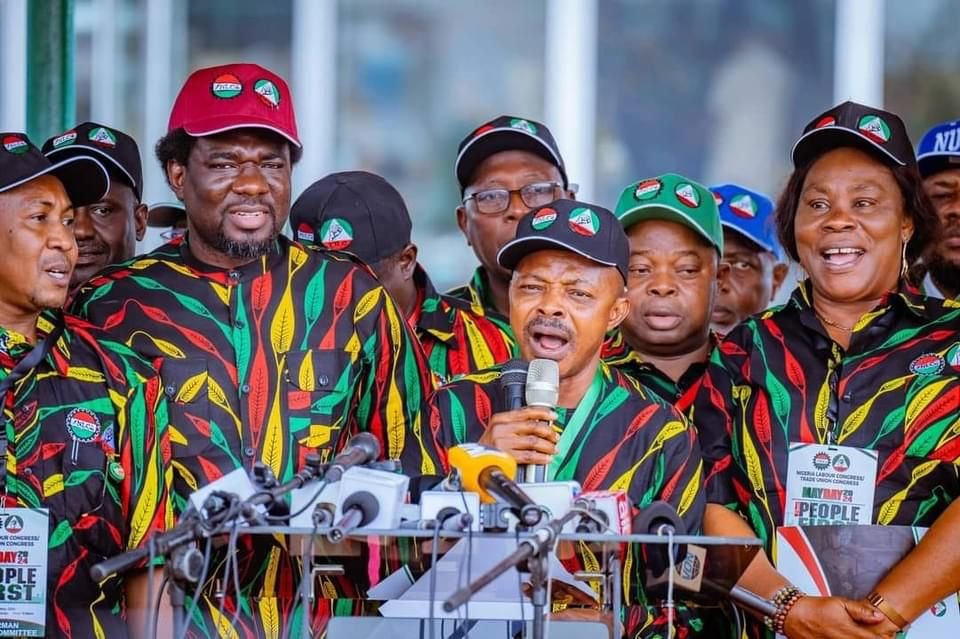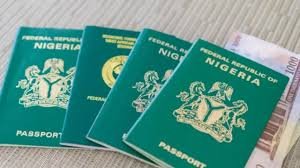Nigerians Lamented the impact of the one day workers’ strike led by the organized labour-NLC and TUC leaders and their affiliate unions, on Monday, June 3.
The cost of the strike is telling. On Day one of the strike access to critical institutions and offices were blocked by the protesters in Abuja, Nigeria’s capital city, Lagos and other cities. Africa Health Report observed that the international airport was blocked. Consequently, flights were cancelled and later rescheduled. The negative impact was that air travelers were disappointed. The TCN workers also joined the strike. Their role was felt, as the entire country was left in total blackout. The national grid was cut off. Korede Abdullah in this special feature notes that the strike was for the first time, a total lockdown.
Strike, the most potent expression of industrial conflict is a common phenomenon in Nigeria not only in Nigeria, but globally. No doubt, the ongoing industrial action has taken its heavy toll on the social and economic activities of the ordinary citizens.
Organised Labour Union
In the past one week, the Organised Labour Union, Nigerian Labour Congress, and Trade Union Congress, TUC, have both flexed muscles with the Federal government of Nigeria giving it an ultimatum to yield to their demand before Monday 3rd June, otherwise, their members would downtool and paralize economic activities in the country.
True to their words, Joe Ajaero, president of NLC and his TUC counterpart, jointly directed all their members to stay off their work places, and declared indefinite strike since it was obvious the negotiations between them and the government over the minimum wage of workers came to an impasse.
The organized labour insisted that a new minimum wage had been long overdue, and due to the incessant soaring of the price of goods and services, the government should upwardly review the wages of workers.
N419,00 Demand
The NLC and TUC had initially made a proposal of a new wage of N615,000 to the federal government. However, after many negotiations and deliberations with government, the union settled for the sum of N419,000.
On its part, however, the government stuck to its gun by insisting on paying the sum of N60,000, adding that the proposed amount from the labour union is unsustainable and unrealistic.
Nigerians Lament
Since the strike commenced on Monday (yesterday), millions of Nigerians have continued to lament the impacts the on their daily economic and social lives. The most poignant of the negative impact is the shutting down of the national grid which has caused power outage across the country.
In fact, millions of households, public and private establishments as well as other organizations are currently without electricity after the national grid was shut down as part of a the strike over the rising cost of living. The entire country was plunged into darkness shortly after the midnight of Monday when union members prevented operators at the country’s power control rooms from working and shut down electricity substations.
NMA Cautions FG to Urgently Address the Wage Issue
The Lagos Zone of the Nigerian Medical Association, NMA, also sounded a note of warning to the federal government to quickly address workers’ concerns and put an end to the ongoing nationwide strike as healthcare services in some Lagos hospitals were significantly impacted.
The Chairman of the NMA Lagos Zone, Dr Olajide Saheed said the Association was in solidarity with the ongoing nationwide the organized labour in their bid to fight for the interest of the Nigerian workers.
Saheed who emphasized the importance of a living wage for all Nigerian workers lamented the negative impact of economic hardship on public health and Nigerian populace.
“The hardship caused by the ill-motivated and anti-masses policy of the government is affecting everyone, including medical doctors.
“The sudden removal of fuel subsidies, the monetary policy of foreign exchange that’s not working, the increasing inflation that’s affecting prices of food, drugs, medical equipment, and all other items are major concerns,” he remarked.
As of the time Africa Health Report (AMR) visited Lagos State University Teaching Hospital, LASUTH, Ikeja, on Tuesday, there were only skeletal services going on leaving many patients unattended to. The same scenario played out at the Mainland Hospital, Yaba as well as the Federal Medical Centre, Ebute-Meta, Lagos.
Apart from the shutting down of the power and health sectors, banks, ports, schools, government ministries, departments and agencies were all shut down following the labour unions’ strike. Nigerians are currently lamenting the impacts of the strike on their daily lives.
Aviation Unions
Aviation unions are not left out as activists at the Murtala Muhammed Airport, Lagos were brought to a halt since yesterday Monday.
The striking aviation unions include the National Union of Air Transport Employees, the Air Transport Services Senior Staff Association of Nigeria, the Association of Nigeria Aviation Professionals and the National Association of Aircraft Pilots and Engineers
The strike also has also affected ordinary Nigerians in many ways. Mr Taiwo Bello, a solar power installation technician lamented that he’s currently feeling the pinch of the industrial action. According to him, he had an appointment with his bank, Zenith bank at Igando, Alimosho Local Government area of Lagos regarding the revalidation of his NIN. The appointment was billed to take place on Monday, June 3 which the strike was declared by the organized labour.
Bello said further, “Many of my customers had sent money to my Zenith Bank account. I was to go to the bank yesterday to rectify the issue I had with my NIN. Unfortunately, the strike has made it impossible. Meanwhile, my customers who gave me money to buy materials have been expecting me since last week.”
Mrs Sherifat Abdul, who operates a cold room where she sells fresh fish, turkey and other frozen foods at Governor’s Road, Ikotun, Lagos, also lamented about the strike, “the power outage has really affected me. At Governor Road here, we are categorized under Band A, which means we have light more than fifteen hours per day.
“Since Sunday night, we have been left in total darkness. We are not used to power cut in this area. Check my freezers and chillers, you will see that I may run into a loss as my goods, mainly fish and turkeys may spoil unless power is restored today.” she said regrettably.
The Federal Government continued with the negotiations yesterday (Monday) in a meeting it held with the Nigeria Labour Congress, NLC and its counterpart, the Trade Union Congress TUC at the Office of the Secretary to the Government of the Federation OSGF. The government said it was ready to pay higher than N60,000 as minimum wage, urging organized labour to take the offer. However, the government was not specific on the amount.
Joe Ajaero, President, Nigeria Labour Congress NLC and Festus Osifo, President, Trade Union Congress TUC. both signed on behalf of the organized labour.
The statement reads in part, “Further to the negotiation by the Tripartite Committee on National Minimum Wage (NMW) and subsequent withdrawal of Labour from negotiation, the Leadership of the National Assembly intervened on 2nd June, 2024. The Organised Labour declared nationwide strike on Monday, 3rd June, 2024 to drive home its demands.
“The Federal Government, in the National interest, convened a meeting with Labour held in the office of the Secretary to the Government of the Federation, on Monday 3rd June, with a view to ending the strike action.
“After exhaustive deliberation and engagement by both parties, the following resolutions were reached:
“The President, Commander-in-Chief of the Armed Forces, Federal Republic of Nigeria is committed to a National Minimum Wage that is higher than N60,000;”
“Arising from the above, the Tripartite Committee is to meet everyday for the next one week with a view to arriving at an agreeable National Minimum Wage;
“Labour in deference to the high esteem of the President, Commander-in-Chief of the Armed Forces, Federal Republic of Nigeria’s commitment in (ii) above undertakes to convene a meeting of its organs immediately to consider this commitment; and
” No worker would be victimized as a result of the industrial action.
“Done in Abuja on the 3rd of June, 2024”.
Even with the above agreement with the organized labour by the government, there is nothing in sight to indicate that the labour unions are ready to back out in their demand from the federal government as Nigerians groan as a result ongoing industrial unrest. Nigerian workers are demanding for a realistic and sustainable wage templeate.
Meanwhile, on Tuesday, President Bola Tinubu in the heat of the strike otcomes gave the Minister of Finance, Mr Wale Edun, 48 hours to present a new minimum wage template.
Only time will tell if the minimum wage issue has finally been settled with this development.



